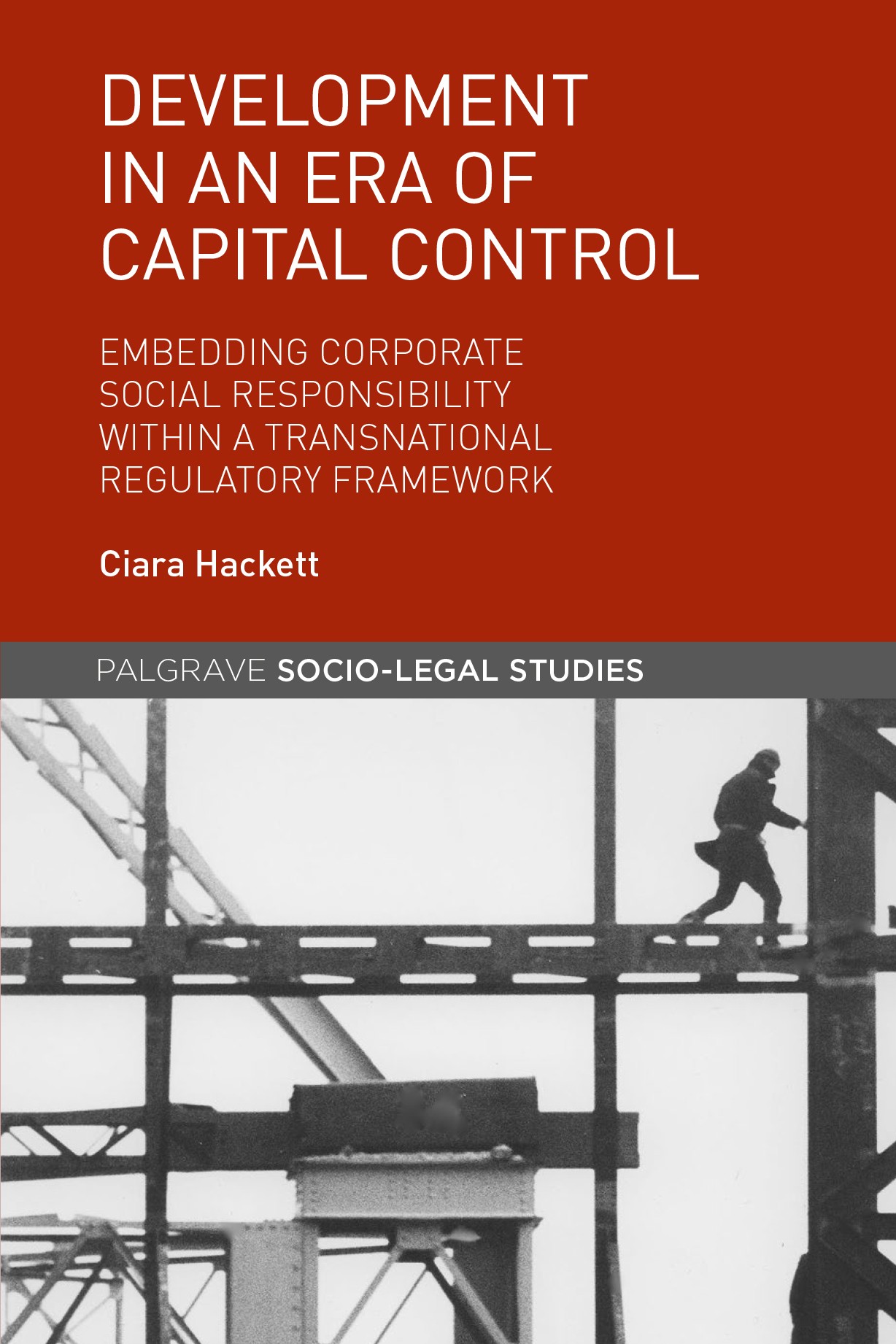| 书目名称 | Development in an Era of Capital Control |
| 副标题 | Embedding Corporate |
| 编辑 | Ciara Hackett |
| 视频video | http://file.papertrans.cn/270/269948/269948.mp4 |
| 概述 | Part of the Palgrave Macmillan SocioLegal Studies series.Of interest to academics and researchers across a variety of disciplines.Subject of topical interest |
| 丛书名称 | Palgrave Socio-Legal Studies |
| 图书封面 |  |
| 描述 | .Development in an Era of Capital Control .investigates Corporate Social Responsibility (CSR), a 21.st. century buzz word. Centred around the responsibility of business to give .back. to society, this idea is a departure from the traditional view that the responsibility of business is to make a profit. Instead, it supposes that business, society and government can unite to enhance the quality of life in the community in which the business operates. . .This book works from the premise that whereas CSR could assist in developing communities, the quality and value of this contribution is constrained by pre-existing inequalities in the global system, which themselves can be traced to states’ histories and furthered by globalisation. Ciara Hackett shows that while the concept of CSR was designed for an environment where all states are equal, this does not ring true in the real world and consequently the potential for CSR to contribute to development is restricted, most profoundly in those states that would benefit the most.. |
| 出版日期 | Book 2017 |
| 关键词 | corporate social responsibility; globalization; Governance; interpretation; responsibility |
| 版次 | 1 |
| doi | https://doi.org/10.1057/978-1-137-47746-0 |
| isbn_ebook | 978-1-137-47746-0Series ISSN 2947-9274 Series E-ISSN 2947-9282 |
| issn_series | 2947-9274 |
| copyright | The Editor(s) (if applicable) and The Author(s) 2017 |
 |Archiver|手机版|小黑屋|
派博传思国际
( 京公网安备110108008328)
GMT+8, 2026-1-2 15:33
|Archiver|手机版|小黑屋|
派博传思国际
( 京公网安备110108008328)
GMT+8, 2026-1-2 15:33


